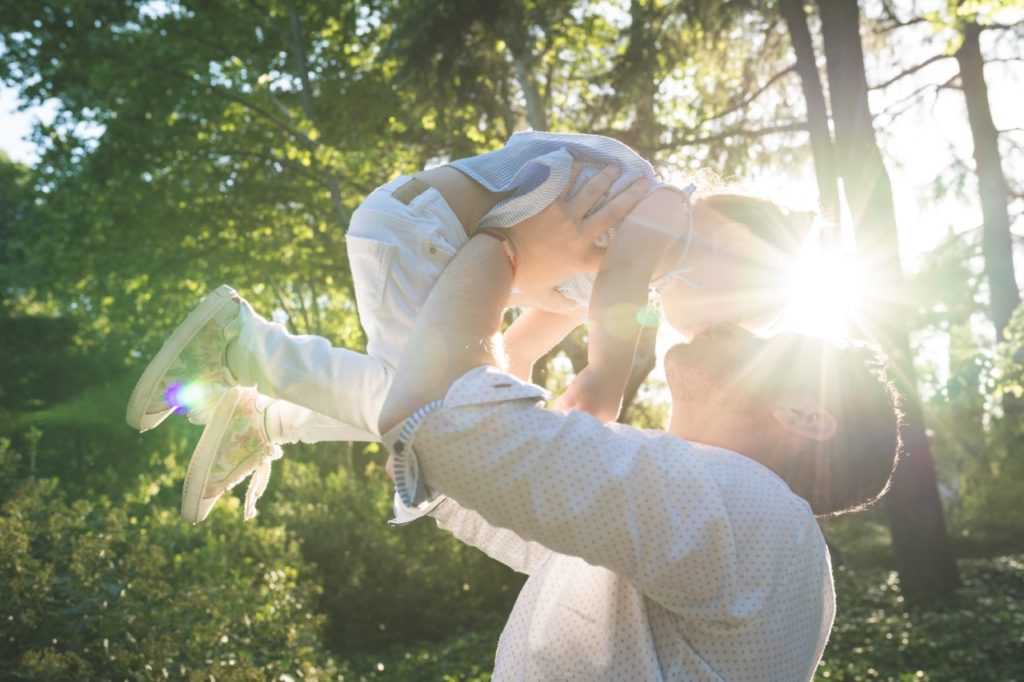Fathers are important, and other lessons I learned when my parents divorced
Having a father in the home may be the single-most determining factor in the successful development of a child. I know the importance of having a father in the home firsthand. My parents were…

Having a father in the home may be the single-most determining factor in the successful development of a child. I know the importance of having a father in the home firsthand. My parents were divorced when I was 10 years old, and in that moment, my whole world changed forever.
In America, approximately 18.3 million children live in a fatherless home. That’s about one out of every four children, giving the United States the “highest rate of children living in single-parent households of any nation in the world,” according to statistics cited by The America First Policy Institute.
While that statistic alone is quite stunning, the impact it’s having on America’s children might be even more staggering.
The data tells us children from fatherless homes account for approximately 90% of all homeless/runaway children; 63% of teens who commit suicide; 85% of children and teens with behavioral problems; 71% of children with substance abuse issues; 70% of children in state custody; and 85% of youths in prison.
And that doesn’t even begin to address the myriad issues children of fatherless homes experience in education.
But why is that? What’s so important about dear old Dad? I don’t have all the answers, but I can tell you what happened in my experience.
Before my parents were divorced, our family life felt something like a classic episode of a wholesome family sitcom from the ’80s. My mother, father, two siblings and I each had our role to play. We worked together to make the sum of our parts greater than the whole. We may not have had everything we wanted, but we certainly had everything we needed.
That all changed once my parents divorced.
Respected psychologist and commentator Dr. Jordan Peterson once described marriage as a relationship for the benefit of the children involved more than the married couple. This, he said, is because the natural role of the mother and father are, at least to some extent, diametrically opposed. Mothers take the role of merciful caregiver and fathers take the role of encouraging disciplinarian.
Dr. Peterson believes, as I do now, that it takes both to successfully raise a child.
Now, he makes clear to point out that it can be done alone – it’s just dramatically more difficult with a much lower rate of success.
This couldn’t have been truer for our family.
Growing up, my father was the sole bread winner and fulfilled the role of encouraging disciplinarian. As the stay-at-home parent, my mother was the merciful caregiver.
Back then, there was one constant: Mom was always there for us. If we fell while at play or had a bad day at school, she was there to comfort us. When we got into trouble, she was there to help us sort everything out. When we were sad, she was there to cheer us up. She was always there for us.
While my father couldn’t always be there physically, his presence was always felt. Earning his adulation was something to celebrate, but you never wanted to disappoint him. Being sent to my room to “wait until your father comes home” was about the most frightening prospect I could imagine then. Just the fear of disappointing him was as bad, or worse, than the actual punishment he would dole out.
That fear was enough to make me think twice before disobeying my parents, lying, breaking the rules or doing anything else to get into trouble. Back then I knew two things were certain. First, Mom would be there, so she would know. And second, Dad would be home later to deal with me.
Their divorce changed everything. My mother simply couldn’t afford to always be there for us anymore. Not physically, at least.
Despite the child support, she had to work hard to make ends meet. Having been a stay-at-home parent to that point, it was difficult for her to find meaningful employment with no work experience and a high school education. That meant she had to work long, hard hours and often had two jobs to make ends meet.
My father’s presence wasn’t felt in the same way anymore, either. Instead of seeing him every night, I would only get to see him for visitation every other weekend or so. He was now the part-time father, and by the time I was 14 he had moved away to New Jersey.
Those weekend visits became occasional phone calls and annual summer trips.
The changes for my siblings and me were immediate, even though the effects weren’t always felt right away. We were latchkey kids now. We had to take care of ourselves while Mom was at work.
Without my mother’s constant physical presence – she had to do what she had to do to put food on the table – and without the always-looming presence of my father, the fear of consequences for my behavior slowly dwindled.
Let’s be honest: children taking care of children isn’t the best recipe for accountability. Try as they might, my siblings simply were not Mom or Dad. They were not equipped to be my caregiver or discipline me when needed.
So, without constant parental supervision it was up to me, at 10 years old, to decide what was best.
Things started out somewhat innocently, such as staying home from school to play video games and watch TV while eating too much candy or junk food and drinking too much soda.
As I began to mature, so did my misdeeds. As I began to see less and less of my father, my search for a substitute drove me to get mixed up with the wrong crowd. As my mother would say, I had too many negative influences.
By age 13, staying home from school to play video games and eat junk food became skipping school with my friends, smoking, drinking and doing drugs. Think Lord of the Flies without the deserted island and at least minimal adult supervision.
By age 14, I was shoplifting, too. On one occasion, the store owner caught my friends and me in the act and took justice into his own hands. He put a grown-man whupping on me. I’m lucky that’s all he did.
When my mother found out what happened, she immediately called the police. I lied to her when she asked me about it. I blamed it all on the store owner. When the police talked to the store owner, he told the truth about my friends and me, and they told my mother. I was banned from hanging out with them and from ever going back to the store – and the store owner agreed not to press charges if we didn’t. It could’ve been much worse.
As I grew older, some of the things I was mixed up in got worse and some got better. Despite all this, I eventually grew up, managed to finish high school, graduate from college and even start a family of my own.
Looking back now, I can clearly see the effect it had on my life when my father left. In three short years I went from a sheltered 10-year-old boy to a bona fide juvenile delinquent.
That said, I was one of the lucky ones. While I became a child of a fatherless home at age 10, at least I’d had a father in the home for those 10 years. Perhaps most importantly, I had a strong, Christian mother who did everything in her power to raise me to be a strong, Christian man.
The fact so many children in America do not have these luxuries isn’t lost on me at all.
As I think about all those statistics I shared on the perils of fatherless homes, I realize I came up just short of falling on the most severe end of that spectrum.
And I cannot help but think, “There, but for the grace of God, go I.”



